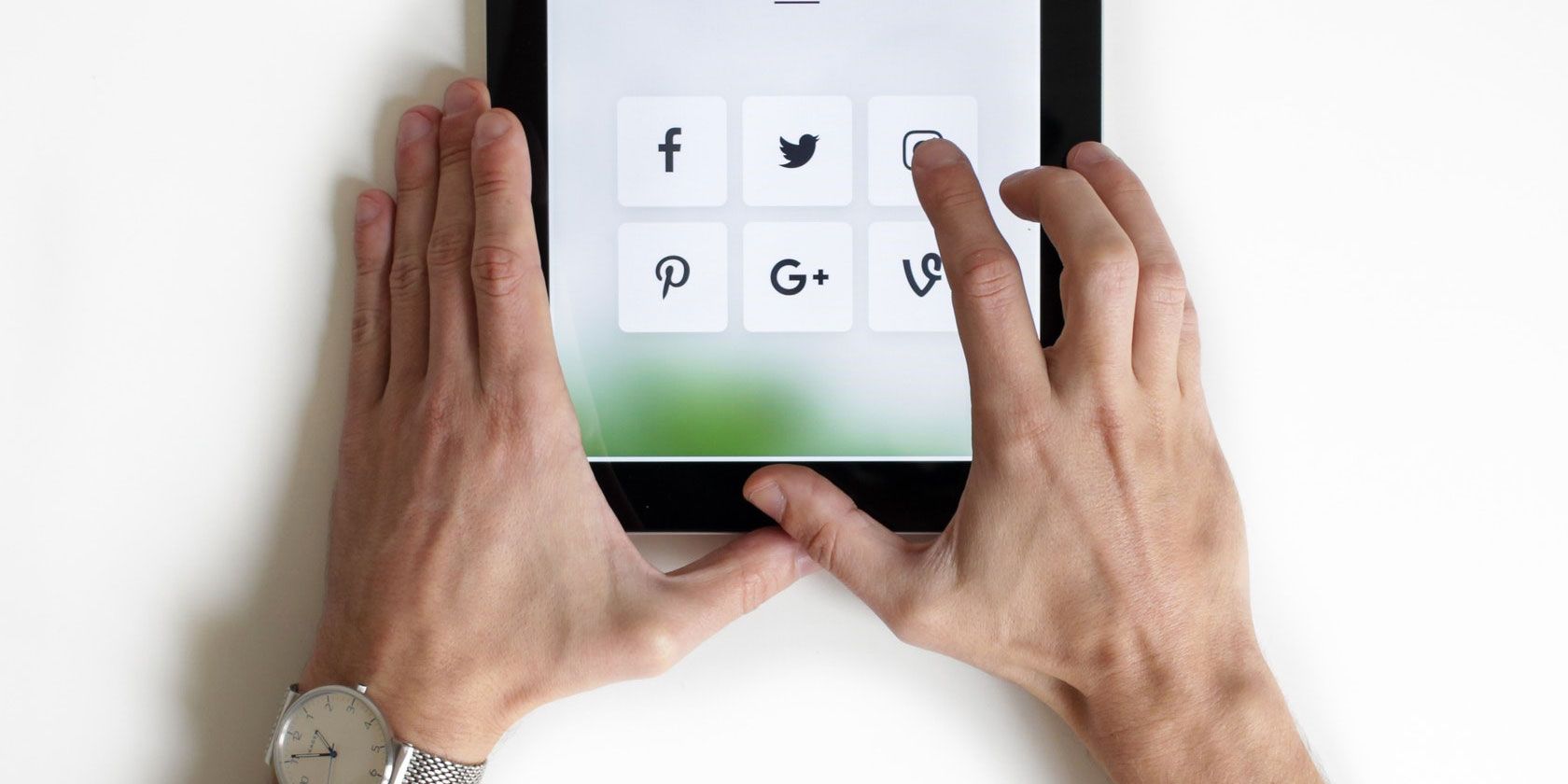
The unprecedented connectivity we see in the digital age means that new slang words are appearing at a faster rate than ever before. And this is especially true on social media.
While many slang terms spread and gain popularity on social media, platforms such as Facebook, Twitter, and Instagram are also the birthplace of their own subsets of slang.
To help you understand the words and phrases being thrown around on social media, here’s our list of popular social media slang terms.
1. Facebook Official

“Facebook official” describes a romantic relationship that has been declared on your Facebook relationship status. You can do this by linking your account to your partner’s in the relationship status section of your Facebook profile.
While this term is specific to a social media platform, the word has also spread into everyday usage to imply that a relationship has gone from casual to serious.
2. Twitter Egg/Egg
They’re going after a twitter egg, but not the nominee’s demonstrably false statements. https://t.co/9PzTRS6UjE
— southpaw (@nycsouthpaw) September 30, 2018
Calling someone a Twitter egg implies that they are a troll, some random anonymous user with little credibility, or even a Twitter bot account. This is because many new accounts created for the sole intent of harassing, accusing, or trolling other users don’t go through the effort of uploading an avatar.
The term “Twitter egg” comes from the social network’s original default avatar for new accounts—a white egg on a blue background. Twitter has since changed the default avatar for new users, but the term has stuck.
3. Social Notworking
Social Notworking: Is the smartphone generation really more prone to unhappiness? https://t.co/7tsuo4dEF4 pic.twitter.com/U5FApOuP8S
— Scientific American (@sciam) December 13, 2017
If you are procrastinating at work by spending time on social media, you’re guilty of social notworking. The word plays on the term “social networking”.
An example of its usage would be: “I have a deadline, but I’m social notworking. Got sucked into reading #InappropriateFuneralSongs instead.”
4. Ratioed/Ratio’d
Got another tweet ratio Hall of Famer here. His whole timeline is filled with ratio’d tweets. Quite the resume. pic.twitter.com/3YMeBoa1op
— Jameson Fleming (@JamesonFleming) November 18, 2018
When someone refers to a tweet’s ratio, or a ratio’d tweet, they are bringing attention to the number of comments versus retweets and likes on the post. This is because tweets with many comments but few likes usually signal that the opinion expressed in the tweet is very unpopular.
Ratio’d tweets are therefore posts that are considered bad takes and controversial opinions, since they’ve attracted many responses but few positive interactions such as likes.
5. Tweeps
?????? to each and every one of you beautiful tweeps. i awoke to so much support and love!! thank you @nbcsnl for the opportunity to play and pay respect and throw shade in an historic space in an historic time. keep fighting, y'all. evil grows in the dark. ?
— Don Cheadle (@DonCheadle) February 17, 2019
Tweeps are Twitter users. The slang word is a combination of the words Twitter and peeps. Tweeps is also the shortened version of tweeple, which has the same meaning.
6. Don’t @ Me
Short girls are smarter cos the blood circulates to our brains quicker. Don’t @ me
— safffyyyyy (@ItsSafffyyyyy) November 18, 2018
When someone says “Don’t @ me” in a tweet, they’re indicating they don’t want to hear your opinions on what they’ve posted. It often follows a (sometimes controversial) declaration and shows that the user doesn’t care what people think about it.
You can use the term either seriously or in jest. The term comes from Twitter’s reply function, which tags a user with the symbol “@” and their username.
7. Sliding Into DMs
Don’t slide in my DM’s when you have a girl cause I’m really going to tell on you. Nobody told me when I was out here looking extra goofy, so I am not the one.
— regina phalange (@loftmusik_) November 17, 2018
Sliding into someone’s DMs refers to direct or private messaging a person on social media that you find attractive with the intention to hook up or spark a romance. This differs from direct messaging for professional or platonic reasons.
As such, you may find people commenting negatively on people in relationships who slide into DMs.
8. Instafamous
Yeah bc the tea is that majority of these “instafamous” are already from well off families and then added on hitting the genetic lottery and paid reviews and etc. Just a whole lotta privilege on privilege on privilege honestly https://t.co/hjoBm8HVTJ
— Hodoh Bodoh (@buttslutmeme_) February 20, 2019
Instafamous is an adjective describing someone who is famous on Instagram due to a large number of followers. Usually, the person is not a typical celebrity, but rather an Instagram influencer who is not famous outside of the platform.
The word is also sometimes used as a noun to refer to people who are Instafamous.
9. Subtweet
U ever see a subtweet that obviously isn’t about u but u always think it is cuz that’s every subtweet I see ever
— UP IN SMOKE TOUR (@Subtronics) November 18, 2018
A subtweet is a Twitter post that criticizes someone without directly mentioning their name. It’s essentially a form of social media passive-aggressiveness that involves complaining about someone without actually identifying who the person is.
10. Tweetstorm
I guess the best way to leak these is in a Tweetstorm… pic.twitter.com/wIVaxhQBQh
— Evan Blass (@evleaks) February 21, 2019
A Tweetstorm is a barrage of related tweets on a topic, usually as part of a rant or long thread.
11. Grammable/Gramworthy/Instaworthy
These terms describe moments and pictures that are worth sharing on social media, specifically Instagram. You can also use the words more broadly to include other social media platforms.
12. #Blessed
People use #blessed to express that they are grateful or lucky to have something that they have mentioned in a post. However, the word has become such an iconic hashtag on Instagram and Twitter that it is sometimes used in spoken language ironically.
13. Vaguebooking
(LOL) An intentionally vague Facebook status update, that prompts friends to ask what's going on, or is possibly a cry for help.
Mary is: "wondering if it is all worth it"
Example:
"Have you talked to Mark? He's vaguebooking again. I wonder if he's back with Mary…"— Mary Harris (@maryharristw) February 26, 2019
Vaguebooking refers to the times when someone posts something on social media that is intentionally vague. This term usually refers to posts on Facebook, but can also apply to tweets and Instagram posts.
Examples of vaguebooking include people posting that they are sad without explaining why, or saying that they are excited for something without explaining what.
14. Twar
The word twar is a combination of the words “Twitter” and “war” and refers to an argument or fight between two Twitter users. Twars are usually very public and involve multiple retorts or interactions.
15. Delete Your Account
T- TONI BRAXTON HAD ONE HIT?!?! DELETE YOUR ACCOUNT. pic.twitter.com/pZPN9W3MrJ
— JVY? (@supremejaysss) February 17, 2019
If someone says “delete your account” in response to a post on social media, they find the post offensive or just plain wrong. The phrase expresses staunch disagreement.
You can also sometimes use “delete your account” as a joke or as a hyperbolic reaction, such as when someone criticizes your favorite singer or movie.
16. Finsta
the Finsta is the window to the soul
— eli (@shepprd) February 12, 2019
A finsta is a secondary, private Instagram account. This account is usually locked and only has a few followers who are close friends or family. The word comes from a combination of “fake” and “Instagram”.
While some people have a finsta account to anonymously follow others who may have blocked them (such as an ex-partner), most people use it as a personal account for content that they don’t want to share with the public. This includes unflattering selfies, but also more personal posts that people don’t want employers or strangers to see.
17. Thirst Tweets
things I want in a man:
– 6'4"
– libra
– jewish
– oscar nominated actor
– is jeff goldblum— kell ? (@funnylooknfella) March 1, 2018
Thirst tweets are tweets that express lust or attraction to certain people, especially celebrities. A popular video trend that has emerged involves celebrities reading thirst tweets that others have posted about them.
18. Lurker/Lurking
Sometimes I feel like socializing and tweeting. Other times (most of the time) I just enjoy lurking. I suck at social media
— Erik (Rideae) (@RideaeSSB) April 22, 2017
A lurker is someone who browses social media, social media profiles, and forums, but without interacting or posting anything themselves. While lurking, people simply observe and follow the posts and interactions of others.
19. Twitterati
Twitterati refers to elite Twitter users, such as those with huge follower numbers. The word comes from the English terms literati and glitterati, which refer to other elite groups of people.
20. Rage-Tweet/Rage Tweet
I sadly don’t have time for #HATM tonight, because I would love to rage-tweet this film. In my house, we stan Anne B for life, and The Other Boleyn Girl is some trash Mary propaganda. That’s all. #HATM pic.twitter.com/XNmCB8bNfR
— Helen Shears (@HelenJShears) February 18, 2019
Rage-tweeting refers to the act of posting angry tweets. This can often result in a tweetstorm, but rage tweets can also appear alone as sudden outbursts of anger on Twitter.
21. Facebook Stalking
Facebook stalking refers to looking at someone’s Facebook profile to find out more about them, but with harmless intentions. This differs from cyberstalking, which is malicious and often involves harassment.
22. Weird Flex But OK
entered edel and this greeted me,, hm weird flex but ok,, pic.twitter.com/wD940ysCmw
— uchiha (@highkeytrash23) February 22, 2019
People on social media use the phrase “weird flex but OK” in response to others bragging about odd, strange, or otherwise unnoteworthy achievements.
23. This Ain’t It
I know it's your opinion but girl this ain't it pic.twitter.com/iwvBvSbrYx
— ?Quin Frost? (@EGyabon) February 16, 2019
When someone is considered to have a bad take or idea, social media users often respond with “this ain’t it” or “this ain’t it, chief”. It can be used in response to posts that the original poster thought would be cool or edgy, but that ends up achieving the opposite effect. You can also use “this ain’t it” in response to opinions that you consider incorrect.
It is a less aggressive way of indicating disagreement compared to “delete your account”. The phrase is very popular on social media and also appears in internet memes.
24. Thirst Trap
Thirst traps refer to sexy photos posted on social media by users, with the aim of attracting attention. The word can also refer to social media accounts that routinely post these types of photos.
25. Sharebait
the sharebait hustle is real https://t.co/5FvM5dxg70
— Brandon Wall (@Walldo) April 11, 2018
While clickbait refers to links that try to influence users to click on them, sharebait posts prioritize shareability over quality or accuracy.
Sharebait often includes misleading images with criticism of popular culture, but the most prevalent sharebait posts are ones that prompt users to share or like to express agreement and disagreement. People sometimes use memes in sharebait, but the best internet memes differ from sharebait since they are not created with the sole intention of being shared.
Find Out More About Modern Slang
Slang is constantly evolving and every day brings new words to our vocabulary. These are some of the slang terms you’ll come across on social media, but there are many more slang terms out there.
To find out more about online slang, check out our guide on trendy internet acronyms you’ll need to know to fit in.
Read the full article: 25 Social Media Slang Terms You Need to Know
from MakeUseOf https://ift.tt/2NGSR6h
via IFTTT



0 comments:
Post a Comment